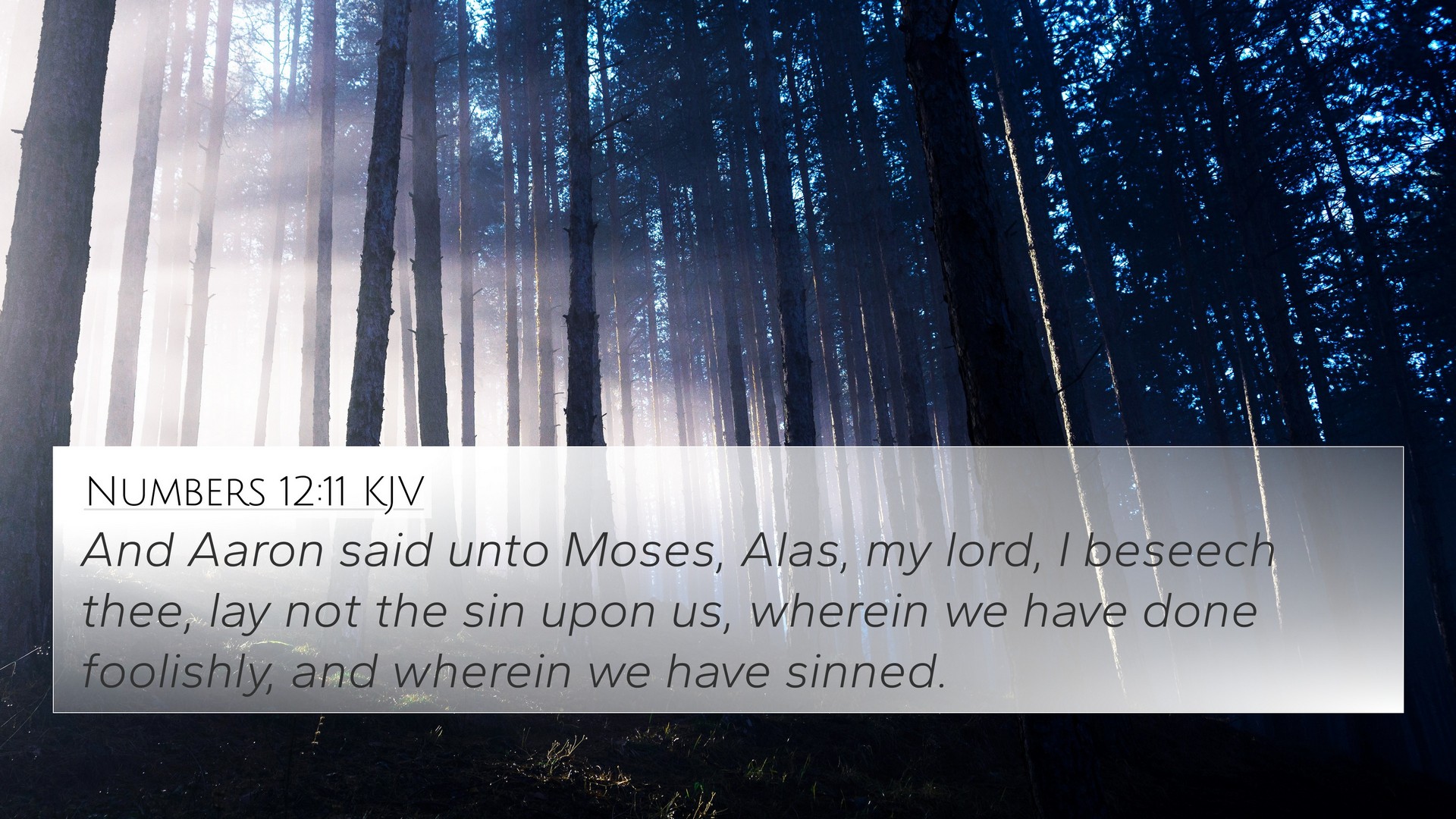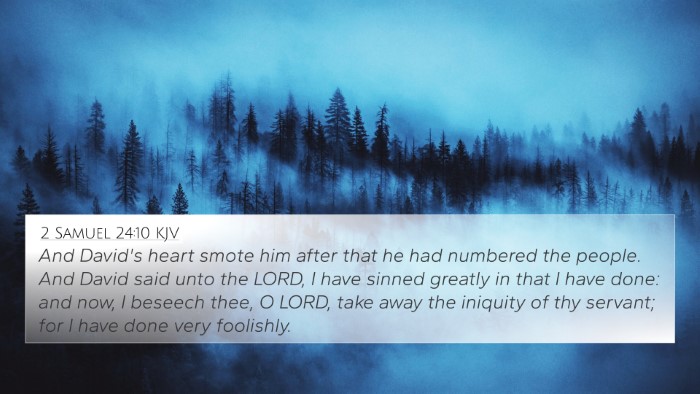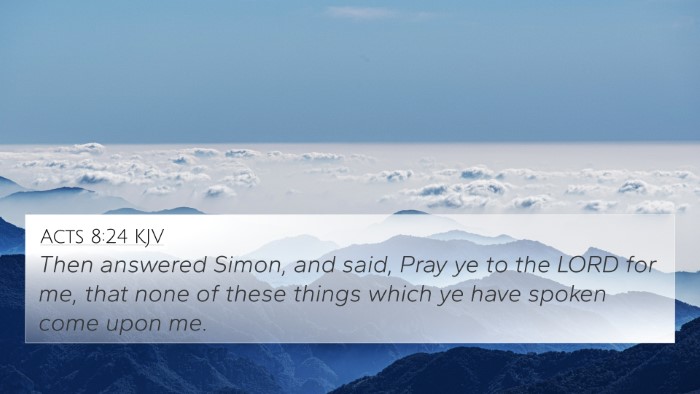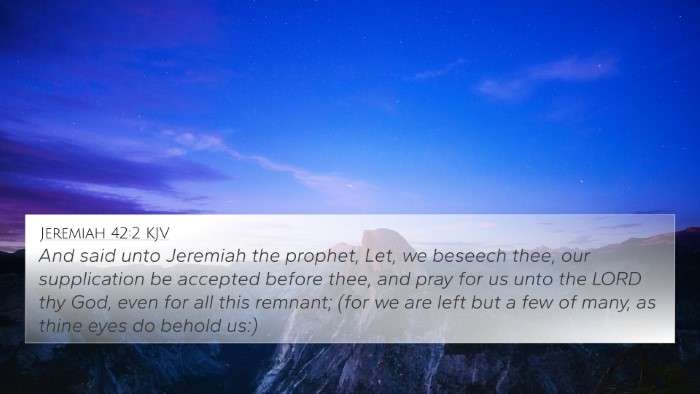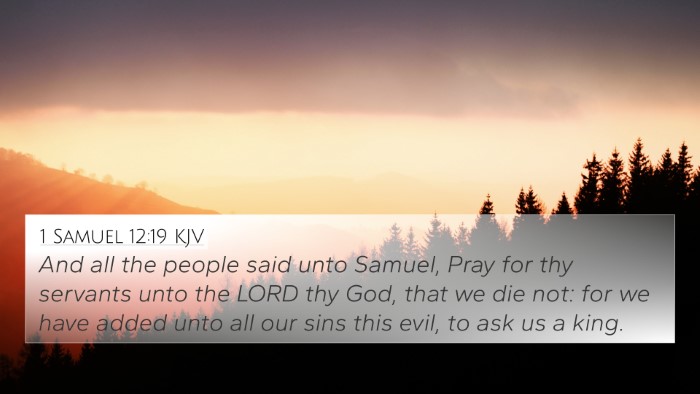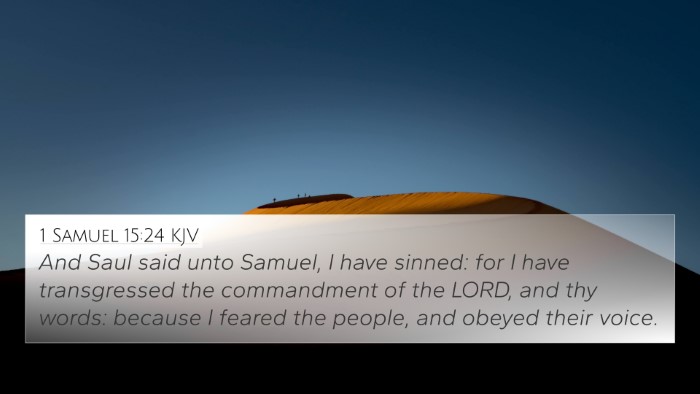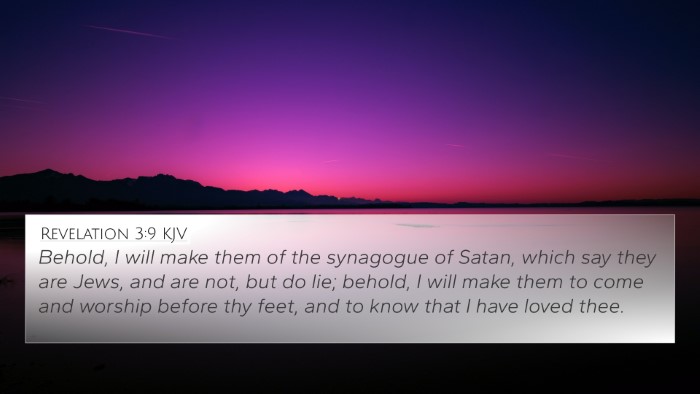Understanding Numbers 12:11
The verse Numbers 12:11 states: "And Aaron said unto Moses, Alas, my lord, I beseech thee, lay not the sin upon us, wherein we have done foolishly, and wherein we have sinned." This verse occurs within the context of a significant episode in the life of Moses, Miriam, and Aaron, highlighting themes of leadership, accountability, and divine judgment.
Contextual Significance
This passage follows a moment of rebellion initiated by Miriam and Aaron against Moses' leadership, prompted by jealousy and a desire for equal recognition. The verse shows Aaron's plea to Moses for mercy, reflecting on their joint foolishness and sin against God.
Commentary Insights
- Matthew Henry notes the gravity of Aaron's admission of guilt and his recognition of the implications of their actions. He emphasizes the importance of humility and the acknowledgment of wrongdoing as a step towards reconciliation.
- Albert Barnes highlights the theological undertones of intercession. Aaron's appeal to Moses serves as an acknowledgment of Moses' unique position as mediator between God and the people.
- Adam Clarke elaborates on the concept of 'foolishness' as a common human trait and underscores the importance of seeking forgiveness, which is central to the believer's relationship with God.
Thematic Connections
Numbers 12:11 invites readers to engage with deeper themes present in the Bible, including:
- Sin and its consequences
- The role of leadership and the necessity of humility
- The significance of intercessory prayer
- Consequences of jealousy and strife among believers
Cross-References and Connections
Several Bible verses resonate with the themes of Numbers 12:11, illustrating the interconnectedness of scripture. Notable cross-references include:
- Exodus 32:31-32 - Moses intercedes for the people, showing the role of leaders as mediators.
- James 5:16 - The power of confessing sins and praying for each other reflects Aaron's plea.
- Psalms 38:18 - The acknowledgment of sin and the desire for mercy aligns with Aaron's words.
- 1 John 1:9 - The promise of forgiveness for those who confess their sins speaks to the hope Aaron seeks.
- Hebrews 4:15-16 - Describes Jesus as our compassionate high priest, similar to Moses' mediatorial role.
- Galatians 6:1 - The call to restore those caught in sin parallels Aaron's recognition of their error.
- Proverbs 28:13 - Reminds us that those who conceal their sins will not prosper, contrasting with Aaron's plea for openness.
Applying the Verse Today
The themes in Numbers 12:11 encourage readers to reflect on their own lives regarding sin and repentance. Understanding the gravity of our actions, especially in a community, can lead to a more profound walk with God. Leaders in faith are called to recognize their shortcomings and seek reconciliation.
Bible Study Tools and Resources
For those interested in further exploring this verse and its connections, there are numerous tools for Bible cross-referencing such as:
- Bible concordance
- Bible cross-reference guide
- Cross-reference Bible study methods
- Bible reference resources like chain references
Conclusion
Numbers 12:11 stands as a powerful reminder of the need for humility, accountability, and intercession in our spiritual lives. Understanding these connections through scriptural cross-referencing enriches our overall comprehension of biblical themes and encourages deeper engagement with the Word of God.
